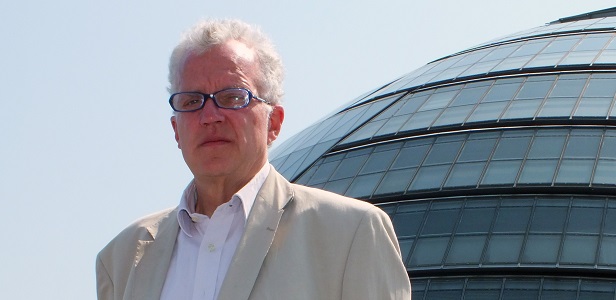I have been asked numerous times by various TV and radio stations, including several foreign ones, to comment on the likely transport problems in the forthcoming Olympics. They are all in search of that all too popular story, ‘transport chaos hits Olympics’ but actually I have been reluctant to give it to them.
As a pundit, it is my job to stick my neck out. For the most part, I avoid doing so when I can so easily be proved wrong within a few weeks but in this case, a prediction is unavoidable. My analysis is based on the fact that a rather clever poker game is being played by the organisers in whose interests, oddly, it is partly in the organisers’ interest to stoke up this negative story.
The Olympic organising committee and Transport for London have been playing a canny game. They have twin aims: to prepare so well that the Olympics pass off smoothly, but also to ensure that it is, for the most part, business as usual in London, the financial and economic powerhouse of the nation.
To guarantee this happens they need a lot of Londoners to, well, to put it politely, get the hell out of town for the 17 days of the Games. Or, if they haven’t headed for the delights of Provence or Florida, then they have to adjust their behaviour to try to avoid the hot spots created by the Olympics traffic. Crying ‘wolf’ therefore has been part of a deliberate PR strategy and consequently stimulated the negative media interest. Without dire warnings, the public will not react in the right way.
Of course, the situation could go badly awry. There are innumerable variables and Murphy’s Law – what can go wrong will go wrong – may well apply. The Olympics, as Mark Evers, the director of games transport at Transport for London stresses, ‘are a one off on a scale that is unprecedented, Britain’s largest logistical exercise ever in peacetime.’
That certainly puts it in perspective and raises all kinds of concerns about London’s ability to cope. However, the detail of the preparations set out in Greg Rhodes’s article in the last issue of Surveyor and my own visit to TfL’s control centre in Southwark convince me that the transport situation, while undoubtedly remaining a risk to the success of the games, has been the subject of an extremely thorough assessment exercise.
It took two hours for Mr Evers to take me through his presentation on the transport issues facing the Games, and even then he skipped through parts of it really quickly. Of course, the new hardware is impressive such as the Javelin rail system that will operate a shuttle service between St Pancras and Stratford, the creation of the London Overground system, the revamped Jubilee line with, finally, its new signalling, and all kinds of bridges and footpaths around the main site.
However it is the software, the forecasting, the preparations such as extra staffing and the related publicity campaigns which will determine whether the planning succeeds or not. In the presentation, there are maps of the road system for every day – since they are all different according to what events are taking place – and predictions of crowding at every relevant Tube station. There are two graphs for each Tube station: one with plenty of red – indicating periods of half an hour when there will be 30 minutes or more wait before being able to take a train – based on no behavioural change by Londoners, and then a second set with much less red based on a 20 per cent reduction in throughput by regular passengers. There is a similar analysis for the situation on the road hotspots.
It is impressive stuff. But it also highlights the biggest risk which is the failure to persuade the stay at home Londoners that they must alter their behaviour and avoid hotspots like London Bridge and Bank if they possibly can. That explains why there have been so many stories about potential Olympics transport chaos.
I suspect the other big risk of a major hold-up is ‘security’. It was the failure to prepare properly for the security aspects that messed up the opening of the Millennium Dome on New Year’s Even 1999 when all the VIPs were subjected to ludicrous levels of checking and ended up queuing for hours to get in. Sure, lessons must have been learnt, but it will only take the combination of a security scare and perhaps the failure of a couple of jobsworths to realise that the rules must to be relaxed temporarily to create a major incident. As a betting man, I am going to stick my neck out and say it won’t happen. But then, William Hill never loses money.
